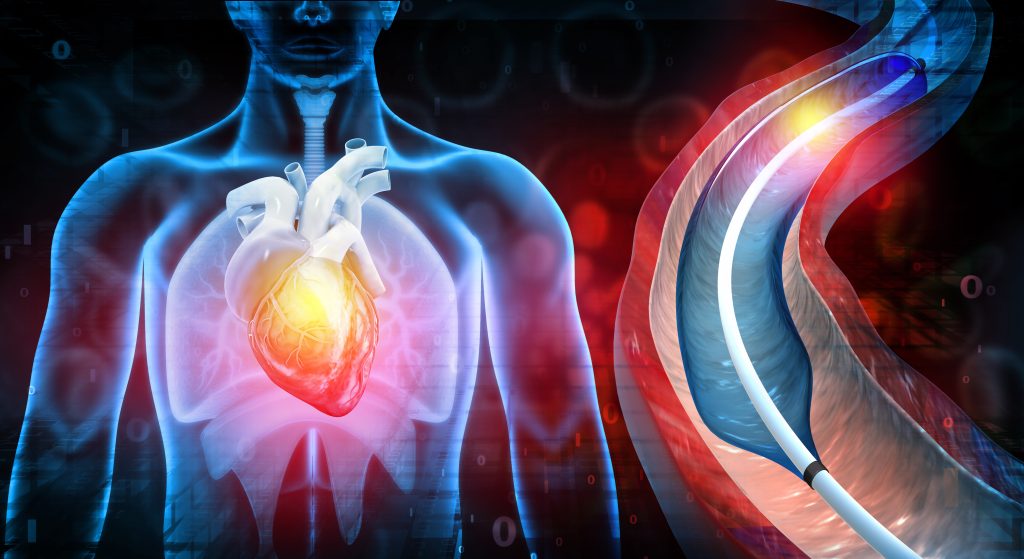How Dr Garcia helps track and improve key cardiovascular metrics
How Dr Garcia helps track and improve key cardiovascular metrics
Blog Article
Understanding the Importance of Cardiology in Modern Health Care Providers
Cardiology plays an essential role in modern-day medical care, particularly as heart problem remains to be the leading reason of death worldwide. Advancements in diagnostics and therapy have changed individual treatment, enabling earlier treatments and enhanced outcomes. Additionally, the shift towards precautionary cardiology encourages people to manage their wellness proactively. As technology continues to develop, the assimilation of cutting-edge remedies may even more redefine cardiology's effect on public health and wellness, triggering a more detailed assessment of arising fads and their implications.
The Occurrence of Heart Problem and Its Influence On Public Health And Wellness
Heart condition remains the leading reason of death globally, its effect prolongs much beyond individual clients to impact public wellness systems and economic climates. The high occurrence of heart problem places a significant pressure on healthcare sources, requiring enhanced financing for therapy, recovery, and avoidance programs. Public health campaigns must address danger factors such as obesity, smoking, and inactive way of livings, which add considerably to the climbing incidence of heart conditions.Moreover, the financial problem related to heart problem is immense, including not just direct clinical prices however also indirect expenses associated with lost performance and early mortality. Areas deal with difficulties in taking care of these prices, usually bring about differences in medical care accessibility and outcomes. As the populace ages and lifestyle-related threats remain to intensify, the seriousness for efficient cardiology treatments becomes critical. Subsequently, resolving heart condition is not only an issue of private wellness yet likewise an essential public health and wellness priority.
Advances in Heart Diagnostics and Imaging Techniques
Recent innovations in heart diagnostics and imaging techniques have reinvented the area of cardiology, improving the ability to keep an eye on and detect heart illness. Techniques such as cardiac MRI, CT angiography, and echocardiography have ended up being increasingly sophisticated, offering comprehensive photos of cardiac structures and features. These modalities permit the very early recognition of conditions like coronary artery illness, heart failing, and valvular disorders.Moreover, improvements in non-invasive diagnostics, such as wearable innovation and remote tracking gadgets, have empowered patients and medical care suppliers. These devices facilitate real-time monitoring of heart rhythms and other crucial indications, causing timely treatments. In addition, expert system is being incorporated into imaging evaluation, improving precision and performance in diagnosis.
Developments in Therapy Alternatives for Heart Conditions
Current developments in cardiology have actually caused substantial technologies in therapy alternatives for heart conditions. These include innovative medical strategies that improve procedural results and emerging medicines that supply new methods for therapy. As the area evolves, these developments play an essential function in boosting person care and results.
Advanced Surgical Techniques
Advancements in medical techniques have actually changed the landscape of cardiology, using brand-new hope for patients with heart disease. Minimally invasive procedures, such as catheter-based interventions, have actually substantially lowered recovery times and healthcare facility stays. Techniques like robotic-assisted surgery improve precision, allowing surgeons to browse complicated anatomical structures with greater accuracy. Developments in imaging modern technology facilitate real-time visualization during treatments, improving results. Transcatheter aortic shutoff replacement (TAVR) exhibits an advancement in dealing with aortic stenosis, allowing valve replacement without open-heart surgery. Furthermore, hybrid techniques that integrate catheter-based and surgical techniques provide customized services for numerous heart concerns. These sophisticated surgical methods not just improve patient security but additionally expand treatment options, emphasizing the vital duty of development in modern-day cardiology practices.
Emerging Therapies and medications
As the landscape of cardiology proceeds to progress, arising medications and therapies play a critical role in boosting therapy alternatives for heart disease. Technologies such as novel anticoagulants and progressed lipid-lowering agents have transformed the management of heart diseases, greatly minimizing individual morbidity and death. Furthermore, the development of genetics therapies and regenerative medicine offers promising methods for dealing with conditions formerly regarded incurable. Scientific trials are continuously exposing the efficiency of these treatments, pressing the borders of traditional treatments. Moreover, the integration of electronic health modern technologies promotes personalized medicine, enabling customized therapy plans based upon hereditary and way of living aspects. Jointly, these innovations emphasize the vibrant nature of cardiology, improving client results and redefining criteria of treatment in contemporary medical care.
The Function of Preventive Cardiology in Patient Treatment
Precautionary cardiology plays a vital role in individual treatment by concentrating on the identification of danger elements that add to heart condition. Via way of living adjustment techniques and very early discovery techniques, doctor can efficiently lower the incidence of cardiovascular events - Cardiology. This proactive technique not just enhances person end results but additionally promotes lasting health and wellness
Danger Variable Recognition
While heart diseases remain a leading reason of morbidity and mortality worldwide, efficient threat variable identification offers as a cornerstone of precautionary cardiology. Recognizing danger factors such as high blood pressure, hyperlipidemia, diabetes mellitus, and family members history is necessary for very early intervention. Healthcare professionals use different screening approaches to examine these elements, permitting customized preventative steps. Additionally, comprehending a patient's way of living options, such as smoking cigarettes and physical inactivity, additionally notifies threat evaluations. This detailed analysis allows medical professionals to create individualized treatment plans focused on mitigating risks. By focusing on threat variable recognition, medical care systems can enhance person outcomes and reduce the general burden of heart diseases, inevitably adding to enhanced public health methods and source allowance.
Way Of Living Adjustment Approaches
A wide variety of research studies highlights the critical function of way of life adjustment approaches in reducing cardiovascular disease risk. These methods encompass dietary modifications, raised physical activity, smoking cessation, and weight monitoring. By adopting a heart-healthy diet abundant in fruits, vegetables, whole grains, and lean proteins, individuals can lower cholesterol levels and high blood pressure. Routine exercise enhances the heart and improves total cardio health. In addition, quitting cigarette smoking substantially decreases the risk of cardiovascular disease and improves recuperation prices for those with current conditions. Weight administration further adds to cardio health by reducing various other risk elements such as diabetes browse around these guys and hypertension. Implementing these way of life alters not only promotes individual well-being however additionally works as a cornerstone of preventive cardiology in person treatment.
Early Detection Strategies
Lifestyle adjustments substantially add to lowering heart disease risks, yet they are most effective when coupled with early discovery strategies. Preventative cardiology highlights the relevance of recognizing potential heart concerns before they rise into major problems. Methods such as blood stress tracking, cholesterol screening, and advanced imaging technologies like echocardiograms play important roles in evaluating cardio wellness. Biomarkers and hereditary testing also enhance the accuracy of early discovery, permitting for tailored preventive approaches. Routine cardiac threat examinations equip doctor to intervene proactively, possibly preventing heart assaults and strokes (Cardiology Jupiter). By integrating these very early detection methods into routine care, individuals can take advantage of timely way of living interventions and targeted therapies, eventually improving results and improving high quality of life
Integrating Technology Into Cardiology Practices
As improvements in technology continue to improve various areas, the assimilation of cutting-edge devices and systems right into cardiology techniques has become crucial for enhancing person care and end results. Telemedicine systems allow cardiologists to check individuals remotely, enhancing access to care while minimizing the concern on health care centers. Wearable tools, such as smartwatches, enable constant heart price surveillance, signaling both medical professionals and clients to possible issues in real-time. Furthermore, expert system (AI) is being made use of to examine substantial quantities of cardiac data, aiding in early diagnosis and tailored treatment strategies. Advanced imaging methods, consisting of 3D echocardiography, enhance visualization of heart structures, causing more accurate treatments. Digital wellness records (EHRs) enhance client information monitoring, ensuring that cardiologists have instant accessibility to vital data. With each other, these technical developments are changing cardiology, advertising aggressive management and improved health end results for individuals with cardio conditions.
The Significance of Client Education And Learning and Involvement
Client education and involvement play a pivotal duty in the administration of cardiovascular health. By outfitting people with expertise regarding their problems, treatment choices, and lifestyle changes, healthcare service providers equip people to take an energetic role in their treatment. This positive technique can cause improved adherence to prescribed drugs, dietary modifications, and workout regimens, eventually reducing the risk of complications.Engagement also fosters a strong patient-provider relationship, encouraging open interaction and trust. When clients feel informed and entailed, they are most likely to voice concerns and ask concerns, which can bring about far better professional end results. Furthermore, academic resources, such as workshops or electronic systems, can improve understanding and advertise self-management approaches. In general, focusing on individual education and learning and involvement is vital for improving cardiovascular health, boosting top quality of life, and minimizing health care expenses connected with cardiovascular diseases.
Future Patterns in Cardiology and Their Possible Influence

Often Asked Concerns
What Lifestyle Adjustments Can Minimize Heart Problem Threat?
The present question addresses way of living adjustments that can greatly lower heart problem danger. Dr Garcia. Adopting a balanced diet, taking part in routine physical task, preserving a healthy weight, handling stress and anxiety, and avoiding tobacco can notably improve cardiovascular health and wellness
Just How Can I Recognize Early Signs of Heart Troubles?
Recognizing very early signs of heart problems includes tracking signs such as upper body discomfort, shortness of breath, fatigue, and uneven heartbeat. Timely awareness of these indications can motivate necessary clinical assessment and intervention for better results.
What Are the Distinctions Between Cardiologists and Heart Surgeons?
The distinctions between cardiologists and cardiac doctors hinge on their functions; cardiologists mostly identify and manage heart conditions via non-invasive approaches, while heart cosmetic surgeons perform procedures to deal with architectural heart problems. Each plays a crucial, distinctive function.

Exactly how Typically Should I Get My Heart Health Checked?
The frequency of heart medical examination varies based upon individual threat aspects. Usually, adults ought to undertake assessments each to 2 years, while those with present problems may require more constant assessments as advised by health care professionals.
What Duty Does Genetics Play in Cardiovascular Disease Threat?
Genetics considerably affects heart problem risk, with familial patterns indicating acquired conditions. Certain genes can predispose individuals to high blood pressure, cholesterol problems, and various other cardiovascular troubles, highlighting the relevance of genetic testing in evaluating heart health. Heart condition continues to be the leading reason of death worldwide, its influence prolongs far beyond specific people to impact public wellness systems and economic climates. Public wellness initiatives have to attend to risk factors such as weight problems, smoking, and inactive lifestyles, which add considerably to the increasing occurrence of heart conditions.Moreover, the financial burden connected with heart disease is immense, including not just straight clinical costs yet also indirect costs connected to lost efficiency and premature mortality. Preventative cardiology plays an essential function in individual treatment by focusing on the identification of risk aspects that contribute to heart illness. Synthetic knowledge (AI) and machine understanding are boosting diagnostics and patient monitoring, making it possible for early discovery of heart conditions. The navigate to this site distinctions between cardiologists and cardiac doctors exist in their functions; cardiologists primarily diagnose and manage heart conditions through non-invasive approaches, while cardiac cosmetic surgeons do surgical treatments to fix structural heart issues.
Report this page